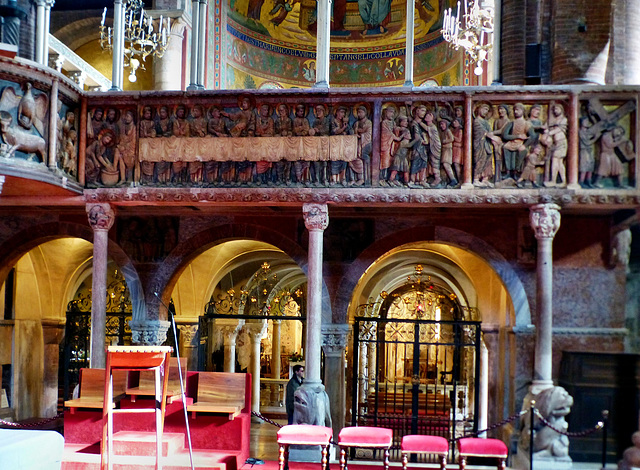Modena - Duomo di Modena
Modena - Duomo di Modena
Modena - Duomo di Modena
Modena - Duomo di Modena
Modena - Duomo di Modena
Modena - Duomo di Modena
Modena - Duomo di Modena
Nonantola - Abbazia di Nonantola
Nonantola - Abbazia di Nonantola
Nonantola - Abbazia di Nonantola
Nonantola - Abbazia di Nonantola
Nonantola - Abbazia di Nonantola
Nonantola - Abbazia di Nonantola
Nonantola - Abbazia di Nonantola
Nonantola - Abbazia di Nonantola
Nonantola - Abbazia di Nonantola
Nonantola - Abbazia di Nonantola
Liège - Collégiale Saint-Barthélemy
Liège - Collégiale Saint-Barthélemy
Liège - Collégiale Saint-Barthélemy
Liège - Collégiale Saint-Barthélemy
Liège - Collégiale Saint-Barthélemy
Vieuxville - Chapelle Saints-Pierre-et-Paul
Modena - Duomo di Modena
Modena - Duomo di Modena
Modena - Duomo di Modena
Modena - Duomo di Modena
Modena - Duomo di Modena
Modena - Duomo di Modena
Modena - Duomo di Modena
Modena - Duomo di Modena
Modena - Duomo di Modena
Modena - Duomo di Modena
Modena - Duomo di Modena
Modena - Duomo di Modena
Modena - Duomo di Modena
Modena - Duomo di Modena
Modena - Duomo di Modena
Modena - Duomo di Modena
Modena - Duomo di Modena
Modena - Duomo di Modena
Modena - Palazzo Comunale
Modena - Telesforo Fini
Castello di Canossa
Castello di Rossena
Location
Lat, Lng:
You can copy the above to your favourite mapping app.
Address: unknown
You can copy the above to your favourite mapping app.
Address: unknown
See also...
Keywords
Authorizations, license
-
Visible by: Everyone -
All rights reserved
-
356 visits
Modena - Duomo di Modena


In the center of Modena, where the Duomo di Modena (aka "Cattedrale di Santa Maria Assunta e San Geminiano") is placed, churches have existed since the 5th century. After the burial site of Modena's patron Saint Geminianus, a former bishop (+397), was dicovered here, the existing cathedral seemed to small.
The first stone laying for the cathedral of today took place in May 1099, strongly supported by Matilde di Canossa (aka "Matilda of Tuscany"). First architect was Master Lanfranco, descibed as "maestro ingenio clarus [...] doctus et aptus".
The Duomo di Modena was consecrated in 1184, but the building process continued. It was finally completed in 1322.
The interior of the Duomo is divided into one nave and two aisles, the interior length is 63 metres. The presbyterium is risen, below is a crypt. Between the central nave and the presbyterium/crypt is a large structure with a marble parapet.
It was created by Anselmo da Campione portraying the Passion of Christ, starting (fltr) with the "Washing of the Feet", the "Last Supper", the "Arrest of Jesus"/the Betrayal, "Pilate's court", the Flagellation and Christ "Carrying the Cross".
Anselmo da Campione, who came (like Lanfranco) from the area near the Lake Como, worked here with his workshop. These experienced specialists, known as "Maestri Campionesi" worked here over many decades. One of them was Anselmo´s grandson Arrigo da Campione.
The first stone laying for the cathedral of today took place in May 1099, strongly supported by Matilde di Canossa (aka "Matilda of Tuscany"). First architect was Master Lanfranco, descibed as "maestro ingenio clarus [...] doctus et aptus".
The Duomo di Modena was consecrated in 1184, but the building process continued. It was finally completed in 1322.
The interior of the Duomo is divided into one nave and two aisles, the interior length is 63 metres. The presbyterium is risen, below is a crypt. Between the central nave and the presbyterium/crypt is a large structure with a marble parapet.
It was created by Anselmo da Campione portraying the Passion of Christ, starting (fltr) with the "Washing of the Feet", the "Last Supper", the "Arrest of Jesus"/the Betrayal, "Pilate's court", the Flagellation and Christ "Carrying the Cross".
Anselmo da Campione, who came (like Lanfranco) from the area near the Lake Como, worked here with his workshop. These experienced specialists, known as "Maestri Campionesi" worked here over many decades. One of them was Anselmo´s grandson Arrigo da Campione.
- Keyboard shortcuts:
Jump to top
RSS feed- Latest comments - Subscribe to the comment feeds of this photo
- ipernity © 2007-2026
- Help & Contact
|
Club news
|
About ipernity
|
History |
ipernity Club & Prices |
Guide of good conduct
Donate | Group guidelines | Privacy policy | Terms of use | Statutes | In memoria -
Facebook
X

Sign-in to write a comment.